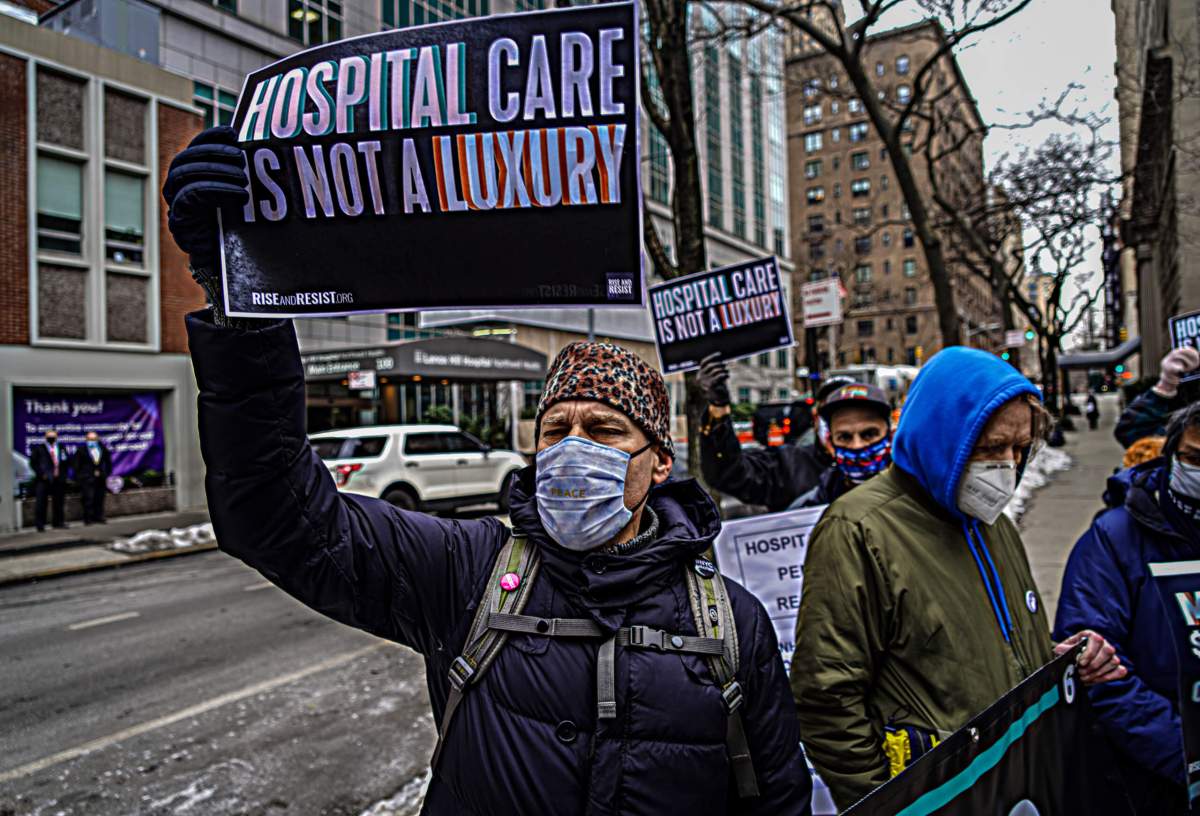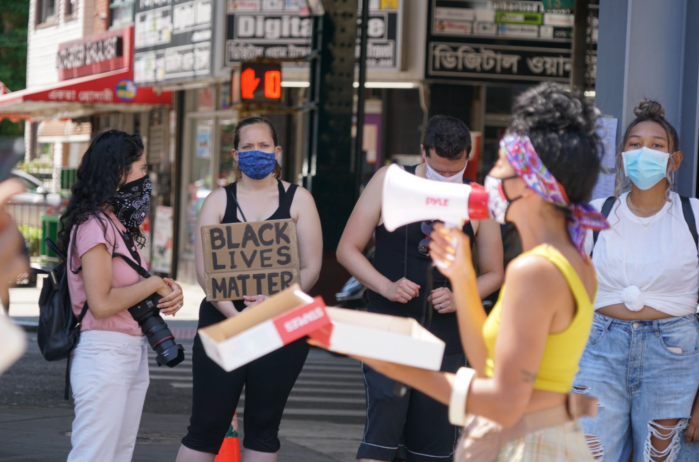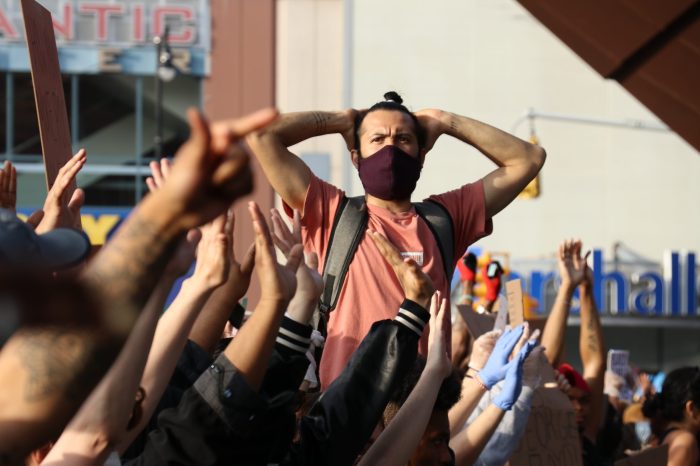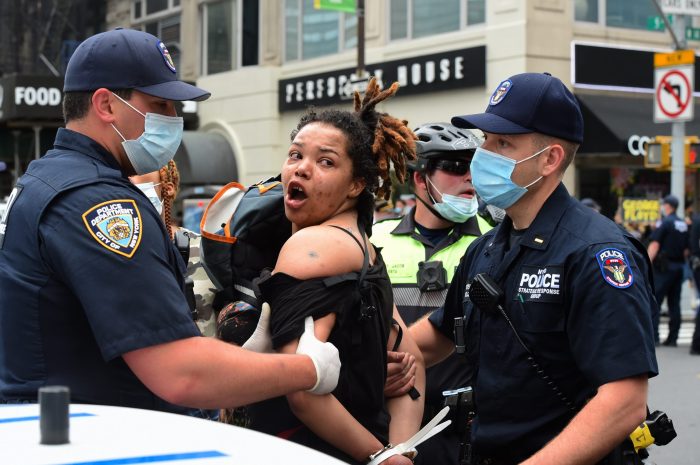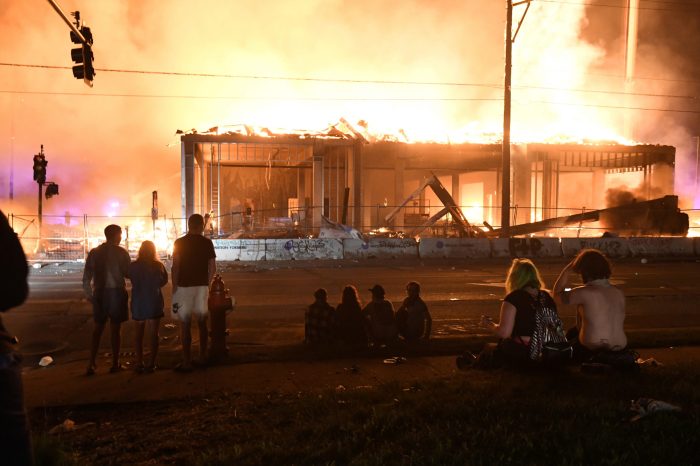Queens protest group Rise and Resist traveled to Manhattan on Monday afternoon to rally outside of Lenox Hill Hospital.
Chants of “Queens needs hospital beds!” echoed around the East 77th Street just outside of Lenox Hill Hospital, a Northwell Health affiliated facility, after 1 pm on Feb. 15.
The group of about 20 individuals is raising awareness for what they call “medical tourism,” a practice in which the wealthy travel to receive the best possible medical care. They claim this custom helps fund already well-financed facilities while leaving low-income neighborhoods unsupported.
It is with this in mind they are denouncing the creation of a tower that will increase capacity at Lenox Hill Hospital, believing that these funds should be used toward hospitals in the outer boroughs, such as Long Island Jewish Medical Center on the Queens/Nassau border, since “the World’s Borough” has the lowest bed capacity with the largest population.
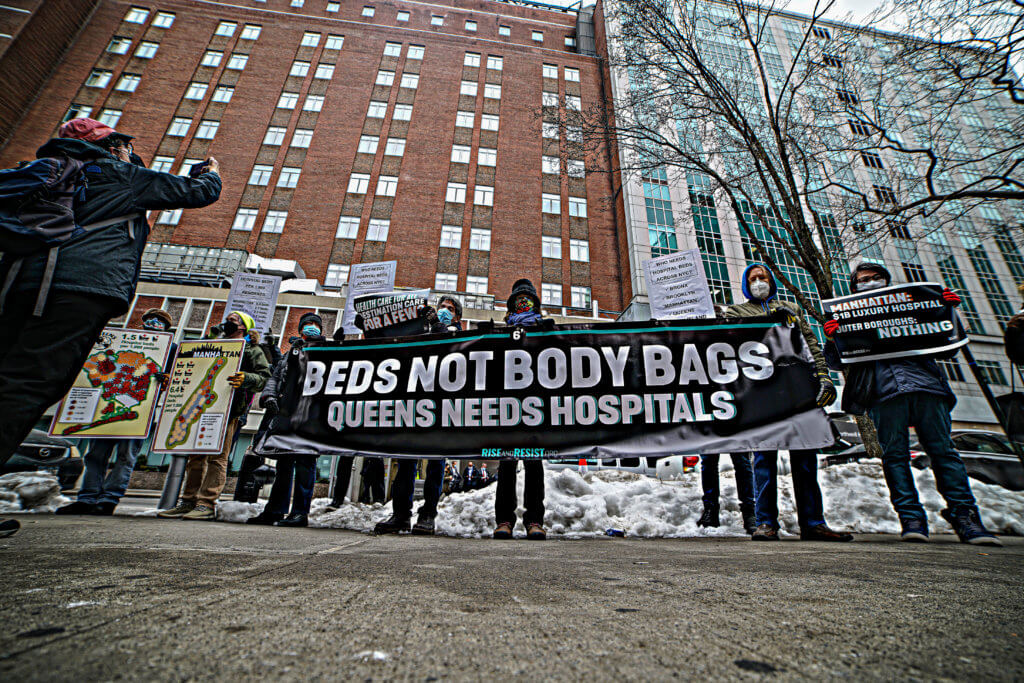
Standing beside a gigantic banner reading, “Beds not body bags,” Leon Kirschner, a healthcare worker from Jackson Heights and a member of Rise and Resist told amNewYork Metro that Manhattan has 1.6 million residents, and 21 hospitals with 6.4 beds per thousand people.
By contrast, Queens has 2.4 million residents, but only 8 hospitals and 1.5 beds per thousand people.
Kirschner says that after four protests in Queens, he is taking the fight to Manhattan after learning of the proposed tower Lenox Hill Hospital will be receiving while he states that Queens residents die without having access to a hospital bed.
Kirschner describes Lenox Hill Hospital as a luxurious location attracting “medical tourism” due to their top quality practitioners and innovative medical work.
“So people who have wealth in countries that might not have a good medical system or may not have the access will come here from different places to get that luxury care,” Kirschner said.
Kirschner’s grievance with this aspect is the claim that while “medical tourism” brings in private insurance and cash, those in low-income areas and outer boroughs such as Queens sufferer since their Medicaid reimbursement is less valued.
Based on this reasoning, Kirschner believes Northwell would rather invest in a Manhattan-based hospital rather than Queens or Staten Island. During the height of the pandemic Kirschner would travel to various areas throughout his native Queens to document the effects of the pandemic. He recalls many of the Queens-based hospitals that are a part of Northwell Network to be the hardest hit and most devastating to see.
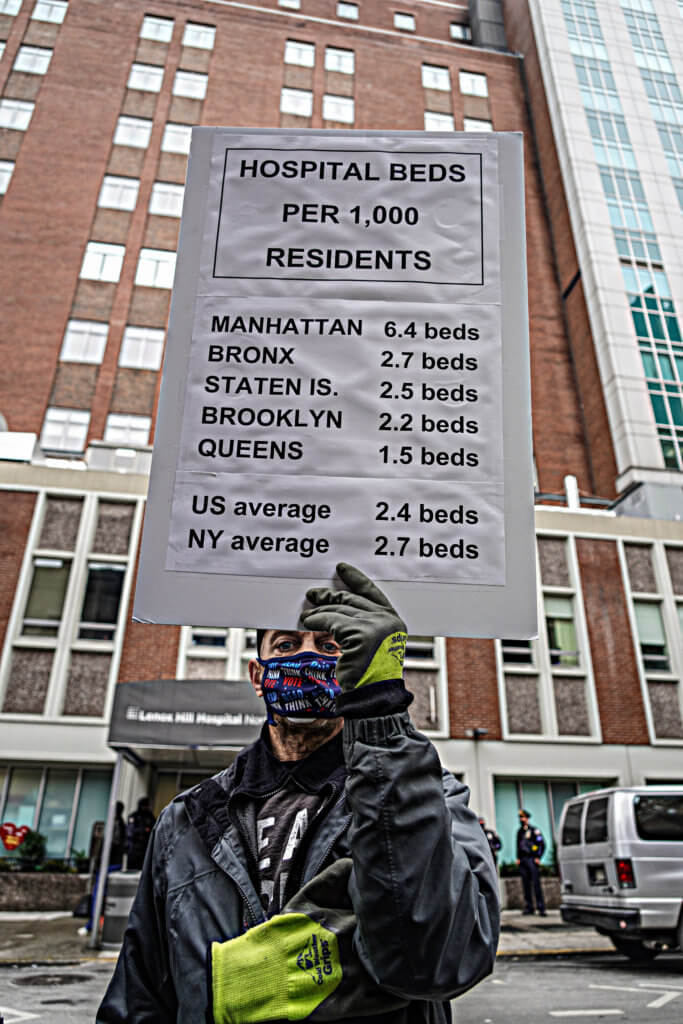
“Their refrigerator trucks were so overfilled at that point that you can see inside of the trucks from the apartment buildings and everything around the neighborhood. It was really a horrifying sight. So when we found out when Northwell intended to build a tower with individual rooms for a luxury hospital, for medical tourism, rather than invest in their Staten Island hospitals, Maimonides in Brooklyn, and LIJ-Forest Hills in Queens. They are putting a billion dollars into creating a private hospital for rich people to come to for medical tourism, it’s horrifying. It’s the idea that they can’t spend on what’s needed now,” Kirschner said.
Kirschner visited 7 out of 8 Queens hospitals during the height of the pandemic—Mt. Sinai, Elmhurst, Northwell-FH, Flushing, NY Hosp-Queens, Jamaica, Queens General. He noted that Forest Hills losses were extremely evident since the smaller hospital was left with an overwhelmingly large amount of bodies that were to be refrigerated. “You could see the slots in the freezers for the bodies because it was so wide opened,” Kirschner said.
This afternoon, #protesters held a #vigil outside of #LenoxhillHospital calling for “Beds Not Body Bags.” They are advocating for more funding to be put into #Queens hospitals rather than further increasing #Manhattan #hospital capacity. @riseandresistny pic.twitter.com/mW3k0NS92S
— Dean_Moses (@Dean_Moses) February 15, 2021
After reaching out to Lenox Hill Hospital for comment, the institution expressed their disappointment in the protest through a statement provided to amNewYork Metro.
“It is unfortunate that this protest purposely ignores the great investments Northwell Health has made in underserved communities across the city. In Queens alone, we have four hospitals and dozens of ambulatory sites that are treating and caring for residents from all neighborhoods around the borough. We will always continue to strengthen those infrastructures and increase the quality of care to those communities,” the statement read.
Northwell Health also states that they have been working tirelessly to aid all individuals in need, including communities of color, which have been disproportionately affected by the ravages of the COVID-19 pandemic.
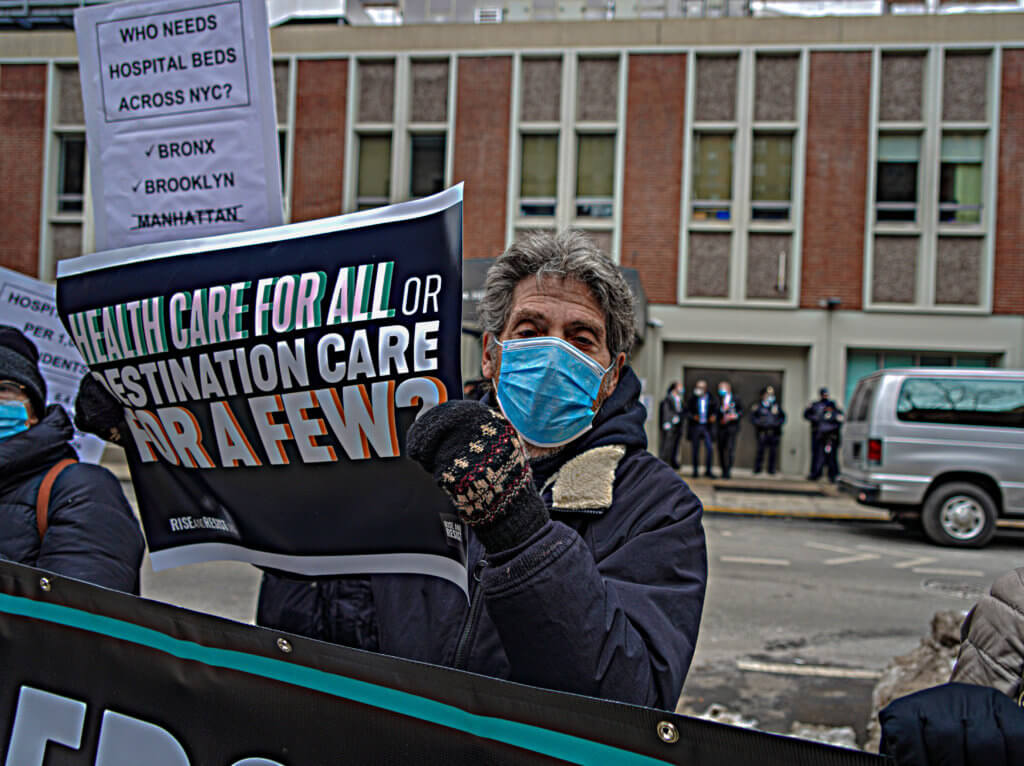
“Additionally, throughout the pandemic, Northwell has partnered with more than 100 faith-based and community leaders which has led to impactful, life-saving actions in underserved Black and Latino communities that were disproportionately impacted by COVID-19. We’ve conducted 85,000 COVID-19 tests and vaccinated 6,000 of these community members over the past year alone. Northwell also has proudly partnered with hospitals across the five boroughs to assist with managing surge capacity during the recent uptick in COVID-19 cases citywide. We have helped with their planning and have made beds available to any hospital outside our system as part of an effort to ‘load balance’ patients–another example of our mission to ensure quality care for everyone who seeks it, regardless of where they are from or their ability to pay.”
A heavy NYPD presence observed the rally until the group disbanded over an hour. No arrests were made.



